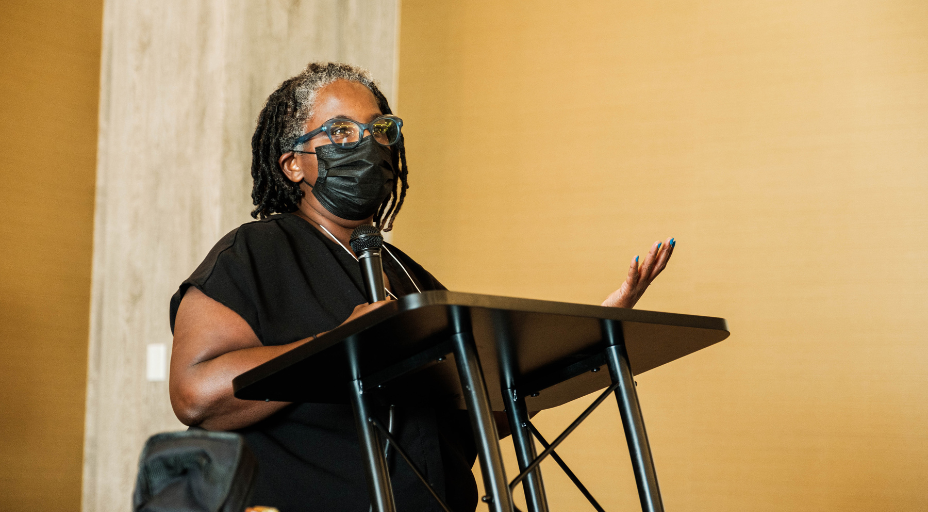As we transition into this new year, I am taking inspiration from the organizers, renters, and working people across the country who are already strategizing and winning big for our communities. From climate demands in New York to wage theft protections in San José to community benefits in Kansas City, our affiliates and allies have hit the ground running.
At the same time, many of us are looking ahead and figuring out how to plan for a year in which our political landscape will be increasingly toxic and volatile. How do we pour energy and capacity into our campaigns, contend with feelings of frustration, fear, and despair, while at the same time building hope, joy, and optimism for the future?
There is no easy answer or universal roadmap for navigating this year. Instead, I’m thinking about key questions that will help us in our campaigns to win the narrative battle for both hearts and minds. Election years are when our society grapples with fundamental questions about how we relate to each other: Who are we? What responsibilities do we have to each other? How do we use our resources to meet those obligations?
Right now, we’re contending with an alliance of corporate interests and authoritarian forces that are trying to push their own answers to those questions, all to maintain their wealth and power. Their “we” is narrow and harmful, excluding those who fall outside of the bounds of wealth, whiteness, patriarchy, and gender normativity. Their responsibility is to hoard wealth and power, keeping it from the rest of us. They use their resources to protect their interests through tactics that we’ve seen across the country: investments in policing, voting restrictions and gerrymandering, inciting panic around borders and immigration, attacks on education, bans on gender affirming healthcare, and more.
We know what kind of future this alliance wants to create, and that means we have to offer a more compelling vision. Our “we” is broad and inclusive, encompassing the majority of folks who live, work, and make our communities feel like home. Our responsibility is to care for each other, both in an interpersonal sense and on a systemic level. That means we check in on our neighbors and make dinner for our friends, and we also fight for jobs that pay us a living wage, for homes we can afford, and for a livable future on this planet. We do this by bringing folks into the process of deciding how we care for each other and how we use our shared resources to make that happen.
We’re building the muscle for a people’s economy and authentic democracy, at the same time that corporate interests and their political allies are trying to divide us and hold on to power. They meddle in our democracy by squashing tenant and worker protections, holding down wages, banning books and access to healthcare, all the while harming our communities.
The stakes continue to rise. Our challenge this year is to paint a hopeful and irresistible vision for the future, one that is more compelling and durable than fear and hate.
